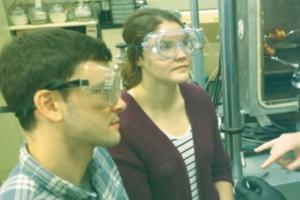Centers, Labs, Groups
In research labs and groups across UVA Engineering, our faculty and students are making discoveries and disseminating their breakthroughs across the globe.
-
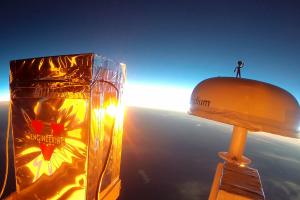
Aerospace Research Laboratory
ARL's current research areas include air-breathing propulsion, hypersonic aerodynamics, optical diagnostic and measurement technique development, particle inertial separation, shock interaction with liquids and particles, and the effects of blast waves on biological systems.Capabilities- Tunnel Sensors
- PIV (Particle Image Velocimetry)
- PLIF (Planar Laser Induced Fluorescence)
- FEA (Finite Element Analysis)
- Density-Based Optical Diagnostics
- TDLAT (Tunable Diode Laser Absorption Tomography)
- External Diagnostics
-
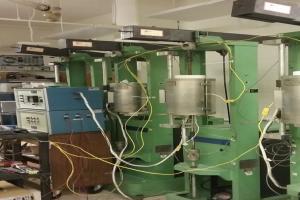
Agnew Research Group
Agnew Research Group is focused primarily on metals analysis, including magnesium alloy formability, intermetallic behaviors, and aluminum alloy fatigue using SEM, TEM, XRD, and Neutron diffraction analysis. Also included in our army of techniques is mechanical testing. -
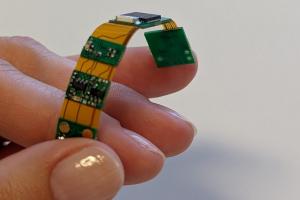
ASSIST Center
The Center for Advanced Self-Powered Systems of Integrated Sensors and Technologies (ASSIST) is an NSF-funded Engineering Research Center established in 2012. ASSIST focuses on creating self-powered sensing, computing, and communication systems to enable data-driven insights for a smart and healthy world. -
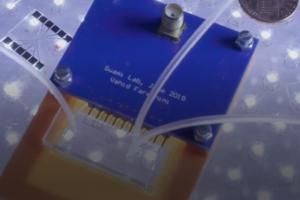
Biophysical Microsystems Group
The Biophysical Microsystems Group seeks to uncover precision medicine-based approaches for disease diagnostics, biomanufacturing and to screen subjects for regenerative therapies. -
Burns Research Group
The Burns Research Group is a member of the Center for Electrochemical Science and Engineering, which operates inside of the Materials Science and Engineering Department here at UVA. Our research is primarily directed towards investigating environmental fracture in structural metals, including ultra-high strength steels, 5xxx and 7xxx-series aluminum, and Ni-based super alloys. -
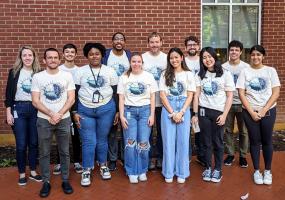
Cardiac Systems Biology Group
Heart function and failure are controlled by complex molecular networks that are just beginning to be mapped. The CSBG combines computational modeling and experiments to discover molecular networks that control cardiac remodeling and regeneration. -
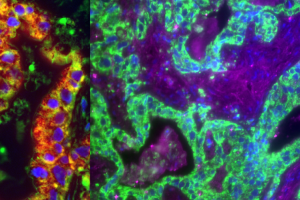
Cell Signaling Engineering Lab
The Cell Signaling Engineering Lab, led by Matt Lazzara, integrates experimental and computational methods to study fundamental aspects of cell signaling regulation and applied aspects of cell signaling including the efficacy of therapeutics that target particular signaling pathways in cancer. -
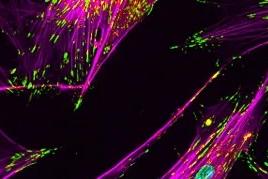
Center for Advanced Biomanufacturing
The UVA Center for Advanced Biomanufacturing supports collaborative research focused on developing innovative regenerative materials for use in advanced biomanufacturing, rapid proto-typing platforms amenable to scale-up, and integration and patterning for construction of hierarchical tissue systems. Co-Directors: George Christ and Shayn Peirce-Cottler.Capabilities- 3-D bioprinting
- Spraybase Electrospinners / Electrosprayers
- Nanoimprint Lithography, soft and smart NIL, Biomolecular printing
- Peptide Synthesis
- Rheometers including extensional testing and light (UV and visable) curing
-
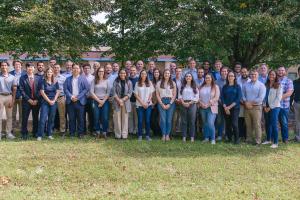
Center for Applied Biomechanics
As the largest university-based injury biomechanics laboratory in the world, the center specializes in impact biomechanics for injury prevention. Started by NHTSA back in 1989, the center now operates out of a 30,000-square-foot facility located in the University of Virginia Research Park. -
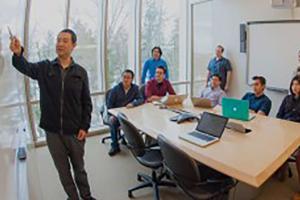
Center for Automata Processing
CAP's mission is to build a vibrant ecosystem of researchers, developers, and adopters for the exciting new Automata Processor. We invite you to explore AP technology by reading about our Center’s research, learning about our partners’ AP applications, and keeping up with news in the community.
